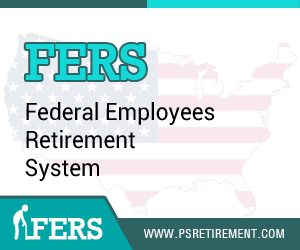Does the Federal Employees’ Retirement System Have a Downside? by Nelson Secretario
/by AdminNelson Secretario investigates the potential downsides of the Federal Employees Retirement System (FERS)

If you’re a federal employee who is enrolled in FERS (the Federal Employees’ Retirement System), then you are probably well aware of the many benefits that this program has to offer as far as saving for the future.
For example, as soon as you have reached your minimum retirement age – which ranges between 55 and 57, this program allows you to retire using an immediate, unreduced annuity if you have put in 30 years of service. In some cases, an employee may even be able to retire at a younger age, provided that they have had either 20 or 25 years of service.
However, while working for the government may allow you to leave the world of employment at a younger age than many other professions can, there can also be some drawbacks to relying solely on the FERS program as your only source of retirement income. Some of these can include:
- Cost-of-Living Adjustments – If you do happen to retire prior to age 62, you won’t be able to receive a cost-of-living adjustment on your annuity (unless you are a disabled retiree or a survivor annuitant). Therefore, you could essentially go for several years receiving the same amount of income, while the prices of goods and services that you’re paying for continue to go up. And, if you are receiving a special retirement supplement (SRS), the funds from this source do not ever receive a cost-of-living adjustment.
- Possible Benefit Reduction – You may also be subject to having your benefit amount reduced, based upon when you actually retire. For instance, the MRA+10 (Minimum Retirement Age) program that is a part of FERS, can allow you to retire at any age, as long as you have at least ten years of service. However, if you do end up retiring early, the amount of your annuity will be reduced by 5% for each year that you are under age 62. So, depending on just how early you leave the workforce, you could see a significant reduction in your retirement income amount.
With this in mind, it can be a good idea to have other retirement income sources available to you that can be used to supplement your FERS benefits. That way, you will be able to both fill in the “gaps” that are left between your income from your FERS retirement income and your living expenses, and you can also provide yourself with a way to compensate for the increased income that you will need in the future.
More From Nelson Secretario:
Finding Financial Advisors for Federal Employees by Nelson Secretario
Finding Financial Advisors for Federal Employees by Nelson Secretario
/by AdminAdvice for Federal Employees about Financial Advisors by Nelson Secretario
 Nelson Secretario – CLU, ChFC, LUTCF, ChFEBC, NSSA
Nelson Secretario – CLU, ChFC, LUTCF, ChFEBC, NSSAFederal employees have a special set of benefits that are available to them in terms of retirement income. While this can provide a nice advantage for these individuals, it can sometimes make it difficult when working with a general financial planner – especially when that planner is unfamiliar with how the federal retirement system operates.
While there are many well qualified financial professionals who can offer general retirement planning advice, when it comes to providing information that is specific to federal employees, it is therefore best to work with someone who is specifically focused in this particular area.
Where to Find an Advisor with a Focus on Federal Employees?
When searching for an advisor who has a focus on federal employees, you will want to ensure that he or she meets certain criteria. For example, in most instances, the advisor will advertise either on their website and / or other materials that they work with employees of the federal government.
In addition to having a “Fed” focus, you will also want to be sure that the advisor has an ample amount of overall experience – a minimum of ten years, as well as proper licensure. In this case, possessing a Series 7 securities license is a must. You can typically tell if a professional is securities licensed by noting whether or not they have “FINRA / SIPC” noted on their marketing materials.
Once you have found a good potential candidate for your needs, the next step is to contact the advisor and set up a meeting with them. As you will likely be working with the advisor for many years – and turning over a bulk of your life savings to them – it is essential that you are able to work together, and that you have trust in him or her as a professional.
You may even want to bring along some questions to ask the advisor, such as:
- What services to you offer?
- What are your professional qualifications?
- How are you compensated?
- Do you work alone or with a team?
- What licenses do you hold?
- Do you possess any additional professional designations?
While the process of finding the ideal financial advisor may take some time, once you have found one who is well qualified to work with you, and who you are comfortable working with, you will be able to successfully move forward towards your retirement goals.






